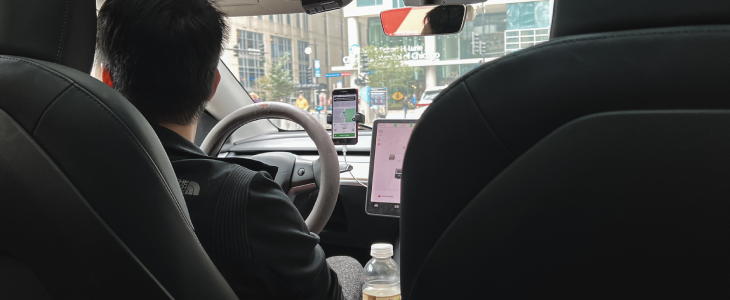With the growing popularity of Uber and Lyft in Houston, an increasing number of people rely on rideshare services for safe and convenient transportation. But what happens if your rideshare driver is involved in a crash? Do rideshare companies like Uber and Lyft automatically deactivate a driver’s profile after an accident—and what does that mean for injured passengers and other accident victims?
At Hernandez Sunosky LLP, our Houston rideshare accident attorneys handle cases involving both Uber and Lyft, and we understand how their policies affect victims seeking compensation. Below, we break down what typically happens to a driver’s profile after a crash and what injured passengers should know about pursuing a claim.
Quick Answer: Do Uber and Lyft Deactivate Drivers After a Crash?
- Temporary Deactivation Is Common: Both Uber and Lyft often temporarily suspend (or “deactivate”) a driver’s account immediately after an incident is reported, while the details are reviewed.
- Permanent Deactivation Depends on Circumstances: If the crash involved serious violations—such as reckless driving, impaired driving, or repeated accidents—rideshare companies may permanently remove the driver from their platform.
- Not Every Accident Leads to Deactivation: A single minor accident without serious injuries may not result in long-term deactivation.
For injured passengers, whether the driver remains active or not has little effect on your right to compensation. What matters is identifying which insurance policies apply.
How Rideshare Companies Handle Driver Accidents
Both Uber and Lyft have internal policies in place to protect passengers and limit their liability. Here’s how they typically respond after an accident:
- Immediate Review: As soon as an accident is reported through the app, the driver may be automatically suspended pending investigation.
- Insurance Involvement: Rideshare companies work with insurers to determine coverage. Uber and Lyft carry $1 million liability policies that may apply if a passenger was in the vehicle or if the driver was en route to pick up a passenger.
- Driver’s Responsibility: If the accident occurred while the driver was offline or waiting without accepting a ride, their personal auto insurance usually applies.
- Safety Violations: If the crash involved DUI, distracted driving, or repeated safety complaints, the driver may face permanent removal from the platform.
What This Means for Injured Passengers in Houston
If you are injured while riding in an Uber or Lyft, the driver’s deactivation status does not change your right to file a claim. What matters most is:
- Determining Liability
- Was the rideshare driver at fault?
- Did another driver cause the crash?
- Could both parties share responsibility?
- Identifying Insurance Coverage
- Uber/Lyft liability coverage may apply if you were actively riding.
- The driver’s personal policy may apply if they were not in active rideshare status.
- Third-party drivers can also be held accountable.
- Seeking Compensation for Damages
- Medical expenses
- Lost wages
- Pain and suffering
- Long-term rehabilitation needs
Factors That Can Affect Driver Deactivation
Not every accident results in a driver being removed from the platform. Rideshare companies evaluate factors such as:
- Severity of the accident (minor fender-bender vs. major collision).
- Fault determination (driver negligence vs. another driver’s fault).
- History of prior accidents or complaints on the driver’s record.
- Evidence of reckless or impaired driving.
Common Questions About Rideshare Driver Deactivation
Does driver deactivation affect my claim?
No. Whether or not the driver remains on Uber or Lyft after the crash, the insurance policies in place at the time of the accident still apply.
Will Uber or Lyft cover the costs of my injuries directly?
Not usually. Compensation comes through insurance claims, either against the rideshare company’s insurer, the driver’s insurer, or a third party’s insurer.
Can I still sue if the driver is deactivated?
Yes. Deactivation status has no impact on your right to file a lawsuit for damages.
Why Legal Help Matters in Rideshare Accident Cases
Rideshare companies are large corporations with powerful legal teams and insurers working to protect their bottom line. Victims often face challenges like:
- Confusion about which insurance policy applies.
- Delays in claim processing while the rideshare company investigates.
- Low settlement offers from insurers hoping victims accept less than they deserve.
At Hernandez Sunosky LLP, our Houston rideshare accident attorneys know how to cut through these obstacles. We fight to:
- Preserve accident evidence.
- Identify all available insurance coverage.
- Maximize compensation for medical costs, lost income, and pain and suffering.
Call Hernandez Sunosky Today
If you were injured in a Houston rideshare accident, don’t assume Uber or Lyft will automatically do the right thing. Contact Hernandez Sunosky LLP today for a free consultation. Our attorneys have the experience and insight to hold rideshare companies and insurers accountable so you can recover the compensation you deserve.

